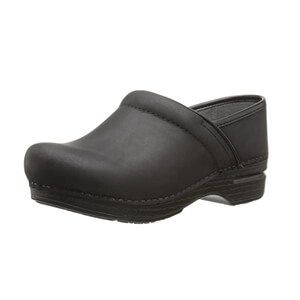Navigating the financial landscape of the nursing profession is a common concern for both experienced nurses and those aspiring to enter the healthcare field. In this article, we will address a question often asked by individuals at various stages of their nursing journey: “How much do nurses make?”
Nursing is a diverse and rewarding field, offering a wide range of career opportunities and specialties. Along with the personal fulfillment that comes from caring for patients, nurses also have the advantage of earning competitive salaries. However, nurse salaries can vary based on several factors, including experience, education, location, and specialization.

In the following sections, we’ll delve into the intricacies of nurse compensation, providing you with a comprehensive understanding of the earning potential in this noble profession. Whether you’re a seasoned nurse curious about the current salary landscape or someone contemplating a career in nursing, this article will offer valuable insights into the financial aspects of the nursing profession.
Let’s navigate the world of nursing salaries and unveil the factors that influence how much nurses make.
The Curiosity Around Nursing Salaries
The journey into understanding nursing salaries is akin to navigating a labyrinth. Consider the demand for healthcare professionals in different settings; rural areas might offer higher salaries due to scarcity, while urban environments might boast higher base pay but come hand-in-hand with a higher cost of living.
Recognizing these dynamics is crucial, enabling aspiring nurses to tailor their career choices to align with their financial goals and lifestyle preferences.
Factors that Influence Earnings
Understanding nurse salaries requires a closer look at the various factors that influence how much nurses make. While compensation varies, several key elements come into play. These include:
- Experience: The number of years a nurse has spent in the field often correlates with higher earnings. Nurses typically see an increase in their salary as they gain more experience and expertise.
- Education: Advanced degrees and certifications can significantly impact nurse salaries. Nurses with specialized training or advanced degrees tend to command higher compensation.
- Specialization: Different nursing specialties come with varying salary levels. Roles that require advanced skills or expertise often offer more competitive pay.
- Location: Geographical location plays a crucial role in nurse salaries. The cost of living and demand for healthcare services in a specific area can affect compensation levels.
- Healthcare Setting: Nurses working in different healthcare settings, such as hospitals, clinics, or long-term care facilities, may have varying salary structures.
- Additional Certifications: Holding certifications in specialized areas, such as critical care or pediatric nursing, can lead to salary increases.

Understanding nurse salaries requires a closer look at the various factors that influence how much nurses make. While compensation varies, several key elements come into play, including experience, education, specialization, location, healthcare setting, and additional certifications.
Breaking Down Entry-Level Salaries for Registered Nurses (RNs)
For those taking their first steps into the nursing profession, entry-level salaries for Registered Nurses (RNs) are subject to a variety of considerations. The disparity in starting salaries between urban and rural settings is tangible, but it extends beyond geography.
The nature of the healthcare institution, whether it’s a bustling city hospital or a smaller-town clinic, can significantly impact initial compensation. It’s not just about the job; it’s about comprehending the economic intricacies of the chosen work environment.
Exploring Specialized Nursing Roles
Venturing into specialized nursing roles offers a unique perspective on earning potential. Take, for instance, a nurse specializing in critical care. The heightened responsibilities and specialized skills required in such roles often translate to higher compensation.

Similarly, nurses focusing on pediatric care, gerontology, or other niche areas find themselves in demand, leading not only to professional fulfillment but also to financial rewards that match their expertise.
Regional Variations in Nursing Salaries
Understanding the regional variations in nursing salaries is paramount for making informed career decisions. Urban settings may offer higher base salaries, but the elevated cost of living should be weighed against this financial advantage.
Conversely, nurses serving in rural or underserved areas may receive various financial incentives, such as signing bonuses, housing assistance, or loan forgiveness programs. Evaluating and navigating these factors enables nurses to align their career goals with their desired lifestyle.
Years of Experience: The Influence on Nursing Earnings
Experience is not merely a marker of skill development; it serves as a catalyst for higher earnings in nursing. A nurse with several years of experience brings a wealth of knowledge, expertise, and confidence to the table, making them more valuable to healthcare institutions.
Recognizing the correlation between experience and earnings is essential for long-term financial success in the nursing profession.
Nursing Education Levels: The Impact on Pay Scale
Investing in education pays dividends in the nursing field. Nurses with advanced degrees or specialized certifications often command higher salaries. Beyond the financial aspect, advanced education enhances clinical skills, critical thinking abilities, and leadership potential.

This positions the nurse for more lucrative opportunities, including higher-paying roles and leadership positions within the healthcare ecosystem.
Bonuses, Overtime, and Benefits
Beyond the foundational base salary, nurses can tap into a realm of additional financial perks. Performance-based bonuses, overtime pay for extra hours worked during high-demand periods, and comprehensive benefits packages that encompass health insurance, retirement plans, and continuing education assistance all contribute significantly to the overall compensation package.
Evaluating these extras provides a more comprehensive view of a nurse’s total remuneration, helping them make informed decisions about their career path.
The Gender Pay Gap in Nursing
While nursing is a predominantly female profession, the gender pay gap remains a significant concern. Understanding the challenges that female nurses may face in terms of compensation is essential for promoting pay equity and ensuring fair wages in the field. Whether you’re a nurse advocating for equal pay or simply interested in the dynamics of the gender pay gap in healthcare.
Travel Nursing: Financial Rewards
Travel nursing stands out as a lucrative opportunity for nurses to explore new horizons while bolstering their financial well-being. Beyond competitive base salaries, travel nurses often receive additional financial incentives. These may include signing bonuses, completion bonuses, and housing allowances, all of which contribute to an enhanced overall compensation package.
Furthermore, the demand for travel nurses in various regions can lead to higher pay rates. Assignments in locations with critical staffing shortages typically offer more substantial compensation packages. This not only allows travel nurses to earn more but also provides them with the chance to gain experience in different healthcare settings and geographic areas.
It’s worth noting that travel nurses often enjoy the flexibility to choose assignments based on their financial goals. They can opt for shorter contracts with higher pay rates or longer assignments for greater job security. This flexibility empowers travel nurses to tailor their careers to their financial needs and personal preferences.
Overall, travel nursing not only offers the excitement of exploring new places but also the financial rewards that come with it. Whether you’re a nurse intrigued by the prospect of adventure or someone looking to boost your earnings in the nursing profession, travel nursing presents a compelling option to consider.
Personal Fulfillment vs. Financial Compensation
In nursing, the equilibrium between personal fulfillment and financial gain is a central consideration. While nurses find immense satisfaction in their role as caregivers, competitive salaries acknowledge their hard work and commitment.

Balancing these factors is a subjective journey, with some nurses prioritizing passion and others seeking higher earning potential. Ultimately, a successful nursing career achieves the right harmony between personal fulfillment and financial stability, enabling nurses to thrive both personally and professionally.
Conclusion
As we conclude this exploration of nursing salaries and the various factors that influence them, it’s evident that nursing offers not only a fulfilling career but also competitive compensation.
Understanding the dynamics of nurse salaries, including the impact of experience, education, specialization, location, and additional incentives, is essential for making informed career decisions.
While financial stability is undoubtedly important, it’s equally crucial to find personal fulfillment in the meaningful impact nurses make on patient lives and the broader healthcare landscape.
Balancing personal satisfaction with financial compensation is a journey that varies from one nurse to another, allowing for a diverse and rewarding range of career paths within the nursing profession.
Whether you’re a nurse assessing your current compensation or an aspiring nursing student contemplating your future, remember that nursing is a profession where you can not only earn a living but also make a life-changing difference in the world.
Embrace the balance between financial stability and personal fulfillment as you navigate your path in this noble and dynamic field.
Frequently Asked Questions
Are nursing salaries higher in urban areas?
Yes, nursing salaries often tend to be higher in urban areas. Urban locations typically have a higher cost of living and increased demand for healthcare services, which drives up nurse compensation to attract talent.
What's the earning potential for specialized nursing roles?
Specialized nursing roles often come with increased earning potential. Nurses with advanced degrees or specialized certifications can command higher salaries due to their expertise and the specific demands of these roles.
Do benefits like healthcare impact overall compensation?
Yes, benefits like healthcare play a significant role in a nurse’s overall compensation package. These benefits contribute to a nurse’s financial well-being and are an essential component of their total compensation.
How can nurses advocate for fair compensation?
Nurses can advocate for fair compensation by staying informed about industry salary trends, negotiating their salaries, and seeking opportunities for professional development and specialization. Additionally, joining nursing associations and unions can provide collective support for advocating for fair compensation and workplace conditions.
You may also like
Skechers Performance Women’s Go Walk 4 Propel Slip-On Nursing Shoe Review
Skechers has made top-notch athletic shoes for many years. The Skechers goods are famous for…
Nurse-Patient Communication: Strategies for Effective and Compassionate Care
The Crucial Role of Nurse-Patient Communication Nurse-patient communication stands at the heart of effective and…
Nursing Ethics: Navigating Complex Moral Dilemmas in Healthcare
The Crucial Role of Nursing Ethics Nursing ethics forms the moral compass that guides nurses…
Dansko Women’s Pro Xp Mule Shoe Review
When one is searching for some comfortable shoe options, one of the best options that…
The Mental Health of Nurses: Coping with Stress and Building Resilience
The Stressors in Nursing Nursing, while immensely rewarding, comes with its share of stressors that…
What type of nurse makes the most money?
Welcome to Nursingshoeshunt.com, where we not only walk you through the best footwear for nurses…






